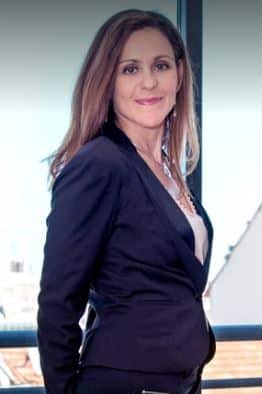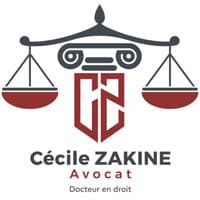The mistakes made in real estate law in Paris How to avoid them with the right lawyer?
Property law is complex and constantly evolving, and is riddled with potential pitfalls for novices and professionals alike. Paris and the Ile-de-France region, with its dynamic property market, are no exception to this rule. This study, written from a legal-practical perspective, explores the common mistakes made in property law in Bordeaux and proposes solutions to avoid them.
1. Introduction
Paris is an attractive city, with beautiful neighbourhoods and chic, attractive suburbs. To find the home of your dreams, you need to protect yourself in advance.
2. No prior audit: carry out a prior audit and appraisal
The mistake: Many people make the mistake of not carrying out a preliminary audit before investing in a property. VEFA, CCMI, for a purchase in the old etc....
The solution: A lawyer who is an expert in property law will carry out a thorough audit to identify any irregularities.
They will refer you to a building expert for a pre-acquisition survey.
3. Failure to comply with planning regulations
The mistake: Some investors are too hasty to check that their property complies with planning regulations.
The solution: It is vital to enlist the help of a specialist lawyer to check planning documents.
4. Hidden defects and construction problems
The mistake: Do not check a property for hidden defects or faulty workmanship. The building expert will assess the property before signing the deed of sale.
The solution: Hire a building expert and consult a lawyer to understand your rights if you discover a hidden defect. This will save you a lot of headaches, expert reports, legal proceedings, etc. .....
5. Ignorance of co-ownership rules
The mistake: Ignoring or misunderstanding co-ownership rules.
The solution: A real estate lawyer can provide guidance and information on co-ownership rights and obligations. Analysing the co-ownership regulations, reading a description of the division of the property and taking a close interest in the Law of 10 July 1965 are the keys to a successful purchase.
6. Complications arising from easements
The mistake: Do not take into account easements attached to a property.
The solution: A specialist lawyer will be able to identify and explain existing easements. Beware of easements relating to networks, rights of way and views. Check the deeds before signing.
7. Errors in drafting contracts
The mistake: Unclear or incomplete wording in sales contracts, unfair terms etc... just because a clause is in a contract does not necessarily mean it is legal. So beware!
The solution: Use a lawyer to draft and review contracts.
8. Ignoring specific tax issues
The mistake: Forgetting to consider the tax implications when buying property.
The solution: A tax lawyer can advise on the best tax arrangements.
9. Dispute management
The mistake: Managing a property dispute on your own.
The solution: A lawyer who is an expert in property law will be essential for an effective resolution of the dispute, either through conciliation or mediation, or by taking the case to court.
10. Lack of legal watch
The mistake: Not being informed of legislative developments.
The solution: Work with a lawyer who will keep a constant watch on legal developments.
What about co-ownership law?
Paris, with its diverse architectural heritage and dense urbanization, is home to a considerable number of condominiums. Due to the complexity of the regulations surrounding this form of ownership and the numerous disputes that can arise from it, recourse to a lawyer specializing in co-ownership law is often essential. In this article, we will explore the importance of this legal expert in managing and resolving co-ownership problems.
1. Introduction: The complex landscape of co-ownership in Paris
Paris, with its Haussmann-style buildings, modern residences and historic complexes, has a particularly complex co-ownership structure. Each building, with its own history and specific features, can present unique challenges in terms of co-ownership management.
2. Co-ownership law and its difficulties
The law on co-ownership of built property, which is regularly updated, establishes a strict legal framework for the management of co-owned property. Between general meetings, managing the syndic, works and co-ownership regulations, navigating this field without appropriate legal expertise can be perilous.
3. Drafting and amending co-ownership regulations
Each co-ownership is governed by specific regulations. A specialist lawyer can help to draw up or amend these regulations so that they comply with current legislation, while respecting the interests of the co-owners.
4. Dispute management
Disagreements between co-owners, or between a co-owner and the syndic, can quickly escalate. A lawyer can offer effective mediation, or, if necessary, represent a client in court.
5. General meetings, with all their questions and debates
Decisions taken at general meetings can have major legal implications. The presence of a lawyer can help co-owners understand the consequences of their choices.
6. Vote on the work
Strict rules apply when carrying out work in a co-ownership. To ensure that everything is done according to the rules, both technical and legal, the involvement of a lawyer can be decisive.
7. The daily management of a co-ownership by the trustee : between dissatisfaction and disputes
A co-ownership lawyer can also advise a co-ownership trustee or union council on the day-to-day management of the co-ownership, ensuring that the actions taken comply with the legislation in force.
8. A property lawyer's legal watch to apply the most recent case law
A specialist lawyer can inform co-owners or the syndic of legislative changes that could affect their building.
9. The Trade Union Council, a pillar of the co-ownership and a close partner of the managing agent
A lawyer can also provide training for members of the trade union council, helping them to better understand their rights and obligations.
10. Conclusion: The importance of specialized expertise of a lawyer in real estate law
In an environment as complex as that of co-ownership in Paris and the Ile-de-France region, the added value of a lawyer specialising in co-ownership law is undeniable.
Your interest is what guides Maître Zakine. Maître Zakine provides you with advice and assistance.
Using a lawyer means you can be sure that your rights are respected, and that the law firm you have chosen is specialised in the required field.
The Zakine law firm is based in Antibes and registered in Paris and throughout France.
Maître Zakine is used to working remotely (videoconferencing, electronic signature, secure file exchange platform).

Lawyer in Antibes, registered at the Bar of Grasse. Intervenes throughout France. Labour law, Litigation at work. Real estate litigation and co-ownership law. Construction problems (VEFA,..)Fast, motivated and committed response. Do not hesitate to contact the lawyer in Antibes: Maitre Zakine. or to make an appointment online for a consultation.
Possible consultation 45€/ 30 min by phone for a first consultation



